
Apr 21 2022 Adventures in Travel with Grandchildren
I’m a lucky guy — happily married for 59 years, with three loving daughters and ten healthy and happy grandchildren (ages 16–30). Like most grandparents, my wife Val and I love them dearly and have been there for them from day one. As they grew up, we looked for a way to celebrate their important events besides cash or material gifts. The answer was TRAVEL. We love to travel and thought that a good high school graduation gift would be to see the world.
Judaism is a world-focused religion which strives to achieve universal peace, justice, and brotherhood. Judaism looks to share its moral values and respects national and ethnic diversity. In this pursuit, Jews need to experience the lives and culture of people in other places, near and far. To date, we have made the following amazing individual trips (7–10 days) with six of our grandchildren: Florence, Italy; Buenos Aires, Argentina; Bruges/Brussels, Belgium; Paris, France; Rome, Italy; Iceland; Santa Fe and Albuquerque, New Mexico. Each one has been joyful and memorable for our grandkids and for us.
Of course, we always talk with our grandchildren’s parents and get their permission before planning a trip.
Here are important things we have learned about traveling with our grandchildren:
Choose a trip wisely.
First, be sure it’s one you really want to take. It should also be one your grandchild would greatly enjoy. Get “soft” input from your grandchild. Like “any ideas where you might want to go?”, or “does _____ or _____ sound good?” Each trip appealed to us and matched interests and personality of our grandchildren. For example, Florence and Rome were perfect for Samantha and Rachel, who were interested in Art and Religion; Iceland and New Mexico fit well with outdoor adventure and challenge for Sam and Jack; Buenos Aires and Belgium/Paris had location changes to spark the curiosity and openness of Andy and Teddy.
 Plan and share the itinerary.
Plan and share the itinerary.
While packaged group trips with reputable travel companies are convenient, we liked customizing our own itinerary. This meant carefully considering safety and political stability, as well as proper accommodations. Our goal was to have a range of worthwhile new experiences — from museums to synagogues to parks and monuments to entertainment and food. Lodgings were always small hotels or apartment/home rentals to assure more personal togetherness. We shared each itinerary, lightly reviewing the main parts and suggesting they look up anything they wanted to know more about. Being flexible was emphasized since things would probably change a little after we got there.
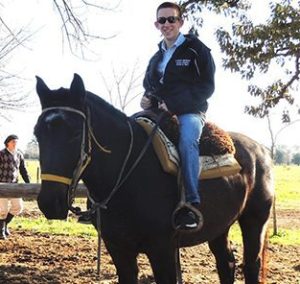
Allow for spontaneous and independent activities.
Be careful not to make the planned schedule overwhelming. Teens want some freedom and their own downtime (e.g., private moments to contact friends on their cell phone, opportunities to explore or shop by themselves, or just walk around the neighborhood). In Iceland, when we were driving to the Blue Lagoon Geothermal Pool, Sam shouted “look at that” when he saw an inviting stone and sand-type mountain. He wanted us to stop so he could climb to the top.
At an estancia outside of Buenos Aires, Andy and our horse-ride guide galloped off into the distance leaving my wife and me in the dust. Going through the Borghese and Vatican Museums, Rachel often went ahead taking her own pictures of paintings and sculptures. Later, she was eager to show us what she took.
Build in plain old fun.
Some of the most unforgettable and meaningful experiences come from shared fun activities. They can guarantee closeness and emotional excitement. We had a great time doing things like dancing the tango in Argentina, walking along the Ponte Vecchio in Florence, listening together at an outdoor Carillon concert in Bruges, laughing and throwing coins into Rome’s Trevi Fountain, playing midnight golf in the rain in Iceland and taking an early morning balloon ride in Albuquerque.
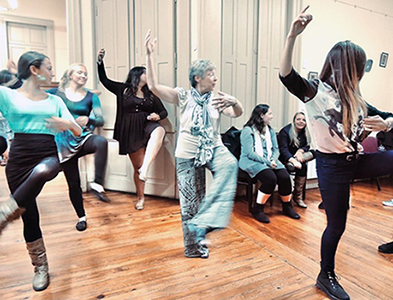
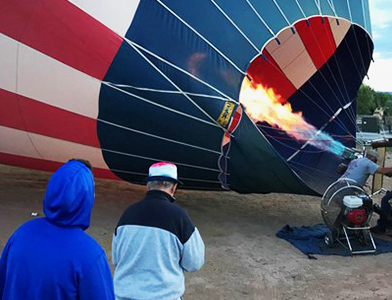
Have a mix of cultural and physical activities.
After spending the morning at the Uffizi Gallery marveling at the many masterpieces, Samantha was thrilled to climb the 463 steps to the top of the Florence Duomo. Teddy maintained his daily morning run and was then ready to venture into a variety of churches, museums, palaces, and historic sights.
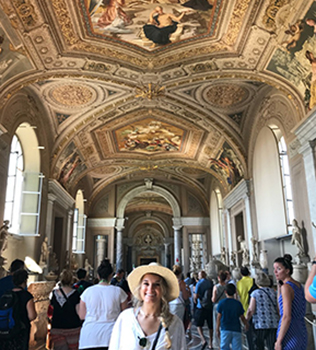
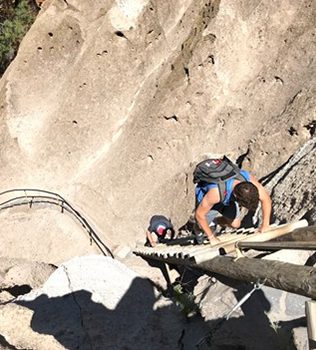
Reinforce our Jewish faith and identity.
With the exception of Iceland, it was possible to visit a synagogue in every trip. In Florence, Rome, Brussels and Buenos Aires, synagogue museums provided histories of Jewish life, struggles and resilience. Stories of antisemitism and persecution were juxtaposed with the magnificence of the Great Synagogues, each of which are in service today, with an active congregation. It became clear in our later conversations that these visits had a significant impact on our grandchildren.
Foster international friendship, interaction, and respect.
During every trip, our granddaughter or grandson displayed courtesy and friendliness to the people they met. Whether official representatives, guides, service workers, or ordinary citizens, all were treated with alert interest and appreciation. We wanted to be Americans that reflected positivity and belief in world harmony.
Enjoy your grandchild’s love and strengths.
The best part of traveling with your grandchild is feeling their affection and care, and observing their many strengths, sometimes to your surprise. Being with them individually for an extended, everyday period in a completely different environment is unique. It offers so many opportunities to learn more about their ideas and feelings, knowledge and skills. Through these special trips we have been rewarded with a strong sense of our mutual grandparent-grandchild love, and confidence in the capabilities and character of each one of our grandchildren.
Dr. Stanley A. Fagen is a recently retired clinical child psychologist who specialized in leading social skills therapy groups for the Jewish Social Service Agency. He has extensive experience helping parents, professionals and exceptional children in school, clinic and hospital settings. Prior positions included school psychologist, supervisor of special education training and director of staff development, MCPS; and chief child psychologist, Walter Reed Army Medical Center.
Photographic Credits
Banner photograph by Stephanie Fink
All other photographs by Stan Fagen

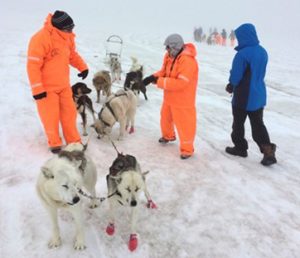
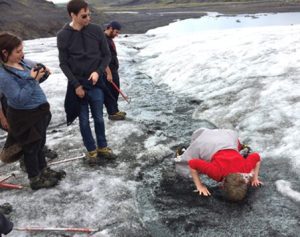 Plan and share the itinerary.
Plan and share the itinerary.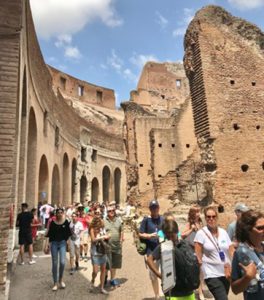



 We use technologies like cookies to remember your preferences. Consenting to these technologies will provide you with a better browsing experience. JGN never shares information about your use of our website.
We use technologies like cookies to remember your preferences. Consenting to these technologies will provide you with a better browsing experience. JGN never shares information about your use of our website.